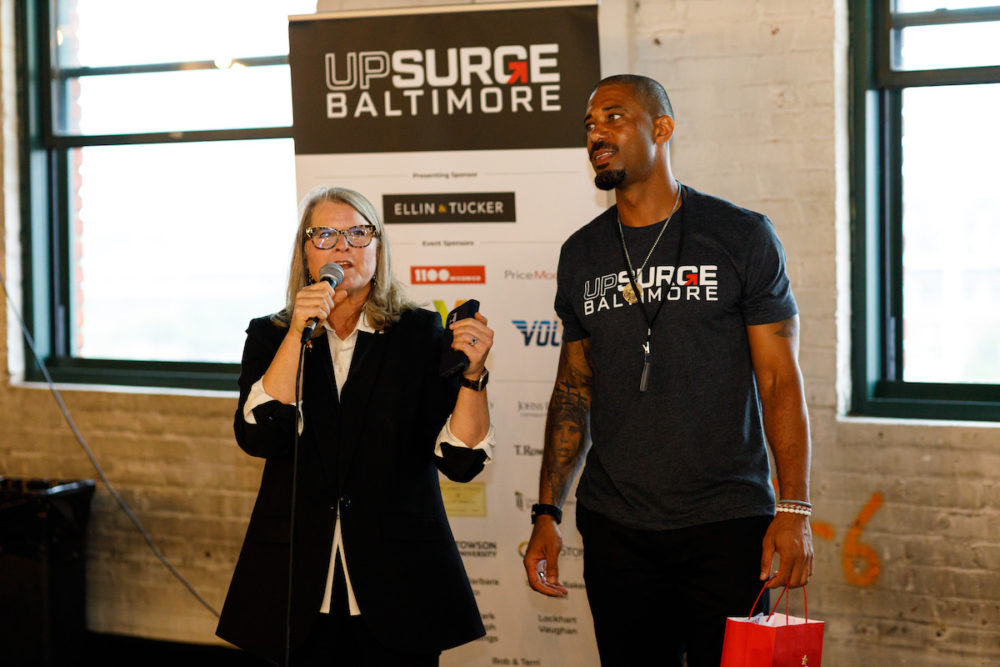Editor’s note: These figures may vary slightly, as some deals aren’t accounted for until weeks after quarterly VC reports are published.
The Q4 2022 edition of the Venture Monitor, which the National Venture Capital Association and PitchBook publicly released on Thursday, shows the Baltimore-anchored metropolitan statistical area (MSA) reporting $132.36 million in VC investment across 15 deals. Q4 investment was nearly double the sum of Q3, during which $71.84 million flowed across 17 deals.
This quarter-to-quarter increase in 2022’s second half, while impressive, did not translate to 2022 surpassing the historic highs of 2021. In that year, according to the latest Venture Monitor (which adjusts to incorporate deals missed when prior quarterly reports come out), $824.83 million flowed through 108 deals. By contrast, 2022 saw $577.45 million across 88 transactions.
The Venture Monitor’s executive summary acknowledges 2022 couldn’t compete with 2021 nationally, either: “In raw numbers, 2022 was a great year for the VC industry, with most indicators of market activity at or near record highs. When graded against any year other than the stratospheric 2021, industry activity was extremely strong.”
“Although earlier stage deal activity and fundraising totals show remarkable resiliency in 2022, the overall slowdown in annual VC activity reflects the sizable headwinds presented by ongoing macroeconomic factors, rising interest rates and frozen avenues for startup liquidity,” noted PitchBook CEO and founder John Gabbert in a statement accompanying the report’s release. “Unable to justify the sky-high valuations seen in 2021 and retreating from the ‘growth-at-all-costs’ mindset seen in recent years, many investors are pulling back until the ecosystem returns to a more palatable normal.”
Big deals
The Baltimore MSA’s top 10 deals of Q4 2022 reflected the ongoing dominance of healthcare and life sciences in a region dominated by massive health networks and top-tier hospital systems:
- In November, biotech company and Johns Hopkins spinout Haystack Oncology raised a reported $67 million in a Series A (previously announced at $56 million, despite US Securities and Exchange Commission filings stating otherwise) led by cofounding institution Catalio Capital Management.
- Cell engineering company Vita Therapeutics landed $31 million in a Series B in October. The round was led by Cambrian BioPharma and Solve FSHD.
- 1100 Wicomico denizen Galen Robotics, a developer of surgical and biomedical robotics, raised a $15 million Series A in October.
- Impact Analytics of Linthicum Heights, which creates AI-supported SaaS products for clients in retail and hospitality, raised a $10 million Series B in October.
- Columbia-based cybersecurity company Balance Theory raised a $3 million seed round led by DataTribe.
- [Scene], the healthcare tech company formerly known as emocha Mobile Health, raised $2 million in a later-stage VC round in October.
- Dapt, a company from Crofton with a platform that helps companies manage and integrate payroll operations, raised a $2 million seed round.
- In November, Parkton-HQ’d Robertson Design raised $1 million in a seed round. An SEC filing puts the amount slightly higher, at $1.35 million, and lists the company’s industry group as a nondescript “Other.”
- Annapolis-based WhisperSom, which creates medtech to assist users with sleep apnea and similar breathing issues, raised about $1 million as of October. An SEC filing from that time logs $525,000.
- Youme of Windsor Mill, a behavioral health company focused on youth, raised $287,500, according to a late-December SEC filing; the Venture Monitor listed the amount at $0, or less than $1 million.
A clearer picture
For Jamie McDonald, the CEO of local ecosystem-building entity UpSurge Baltimore, this latest report paints a too-incomplete and overly broad picture of the way companies are actually thriving in Baltimore. McDonald and colleague Chris Bunner, a data analyst and Venture for America fellow, have even compiled their own analyses of PitchBook’s data to better qualify what the internationally facing firm may miss when taking more regional, MSA-based approaches.

McDonald provided Technical.ly with Bunner’s analysis of Q4 deals in city of Baltimore and its immediate surrounding region — an area far smaller than the MSA’s reach. According to that spreadsheet, the Venture Monitor’s VC focus overlooks one of Baltimore’s biggest Q4 deals: the $38 million in IP-backed financing that nanotech firm Pixelligent raised in November.
Using this accounting and methodology, McDonald instead puts Baltimore’s 2022 total at “around $835 million.”
“That is up 12 to 13% over 2021, in the context of a year nationally that was down 35%,” she added. “We also had several hundred-million-dollar-plus deals, which is also a sign of a strengthening ecosystem, and many other smaller companies that demonstrated that Baltimore is a place where founders can raise money across sectors and stages.”
While she thought there were too many variables to make a firm prediction for 2023, McDonald emphasized that Baltimore’s status as “an emerging startup economy” means that it will have better and worse years as it establishes itself better. She noted such regional assets as the well-established regional university systems, as well as their resources dedicated to entrepreneurship, that can help sustain local innovation and development through a possible recession.
She also referenced UpSurge Baltimore’s “The $11 Billion Opportunity” report, which argues that key stakeholders making capital and priority pivots could unlock $11 billion for the startup economy, and the excitement around Wes Moore’s historic election as Maryland’s first Black governor as encouraging developments.
“The assets are here,” she said. “Our core opportunity is to really start to build the culture of investing, supporting and nurturing startups and the innovation economy that you really feel when you go to places like Austin, San Francisco, Seattle, New York and Boston. So, I think that cultural progress is something that we’re really focused on — and that we think could really begin to take hold in in 2023.”







